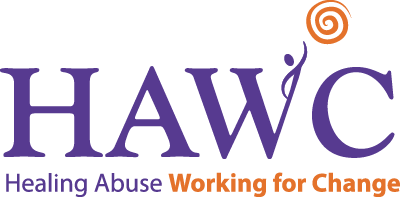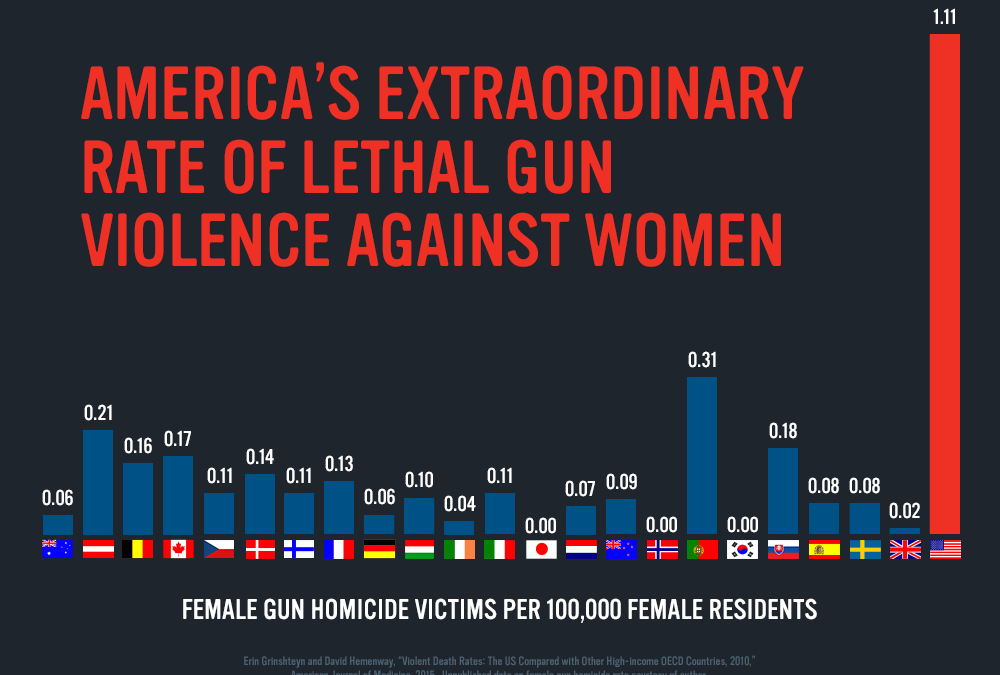This Monday, news broke about a shooting in Sutherland Springs, Texas, which saw 26 people dead at a Texas church. Of course, HAWC joins the country in mourning another national tragedy, sending thoughts to the families of survivors and the small town that must now recuperate from this unimaginable trauma.
In the hours following this shooting, details emerged about the shooters identity, including reports of a previous domestic abuse conviction that should have prohibited the shooter from owning a gun in the first place. In light of this event and growing political debates around legal gun ownership, the connection between firearms, shootings, and lethal domestic abuse cannot go undiscussed.
The minute a perpetrator brings a firearm into an abusive relationship, the survivor is 500% more likely to die. In fact, every 16 hours, an American woman is fatally shot by her partner, and 53% of all murdered women were killed by intimate partners or family members. More than just escalating an abusive relationship to life-threatening status, owning a gun allows abusers to take their violence outside the home. In the most recent mass shootings in the United States, such as in the Orlando Pulse Shooting, the Planned Parenthood shooting, and the shooting at Sandy Hook Elementary School, the perpetrator committed domestic abuse against family members or romantic partners prior to their murderous spree. In cases where the authorities must intervene in an abusive relationship, the presence of a firearm greatly increases the chances that a police officer will die responding to domestic abuse. Even if the gun isn’t ever used, introducing a firearm to an abusive relationship has the potential to worsen PTSD symptoms in domestic abuse survivors, according to new research coming Yale University.
As it stands, anyone who has been convicted of the felony or misdemeanor crime of domestic abuse towards a spouse, former spouse, cohabitating intimate partner, or person with whom the offender shares a biological child, or anyone with a permanent restraining order, cannot own firearms. This federal law succeeds in banning domestic abusers from gun ownership by requiring background checks and creating processes that ensure abusers and stalkers must surrender the guns in their possession. This law has disarmed thousands of abusers, saving many lives, as evidenced by the fact that in all states that require background checks for all handgun sales, there are 38% fewer women shot to death by intimate partners.
Still, several loopholes in this law can lead to countless life-threatening situations through poor definitions and enforcement:
- The law isn’t absolute enough. Anyone convicted of domestic abuse against a dating partner convicted of stalking, or maintaining a temporary restraining order can still possess firearms. Often, this is called the “boyfriend loophole.”
- Even if abusers are legally prohibited from owning a gun, then can evade the law. An abuser can easily escape gun law prohibitions by purchasing guns from unlicensed, private sellers, who do not require background checks. Offenders may also be able to purchase a gun because their local records do not provide enough information to flag them as abusers.
- Enforcing these laws is almost impossible. While federal law bars convicted abusers from owning guns, there are not many matching state laws, preventing local authorities from finding effective ways of disarming those found or alleged to have done their partners harm. In fact, 41 states do not require all prohibited domestic abusers to relinquish the guns they already own.
Polls show that over 65% of Americans support changes in gun laws that would help take guns away from domestic abuse perpetrators. These changes would close the loopholes detailed above, barring abusive dating partners and stalkers from owning guns, requiring comprehensive background checks on all gun sales, and creating affective policies for taking guns away from abusers who already have them. If you are someone who feels passionately about this issue, HAWC encourages you to explore our “Create a Change” page, so that you may feel empowered and capable of making your voice heard.
References
- Guns and Violence Against Women: America’s Uniquely Lethal Domestic Violence Problem.
Everytown for Gun Safety. Retrieved from
https://everytownresearch.org/reports/guns-and-violence-against-women/ - Masters, Kate (April 18, 2017). Guns Do Damage in Abusive Relationships Even When They Don’t Go Off. The Tracehttps://www.thetrace.org/2017/04/guns-intimidation-domestic-violence-relationships-ptsd/
- Shaw, Kerry (August 22, 2016). 12 Facts that Show How Guns Make Domestic Violence Even Deadlier. The Trace. Retrieved from
https://www.thetrace.org/2016/08/15-facts-that-show-how-guns-make-domestic-violence-even-deadlier/


